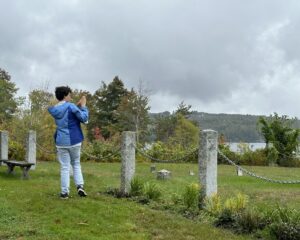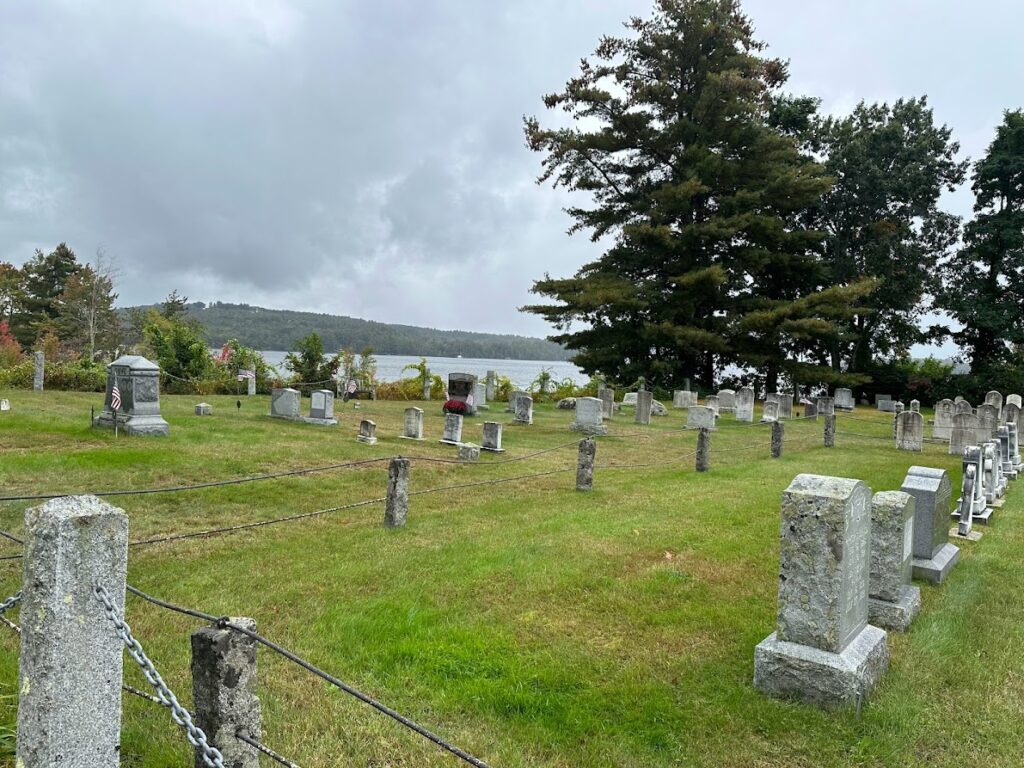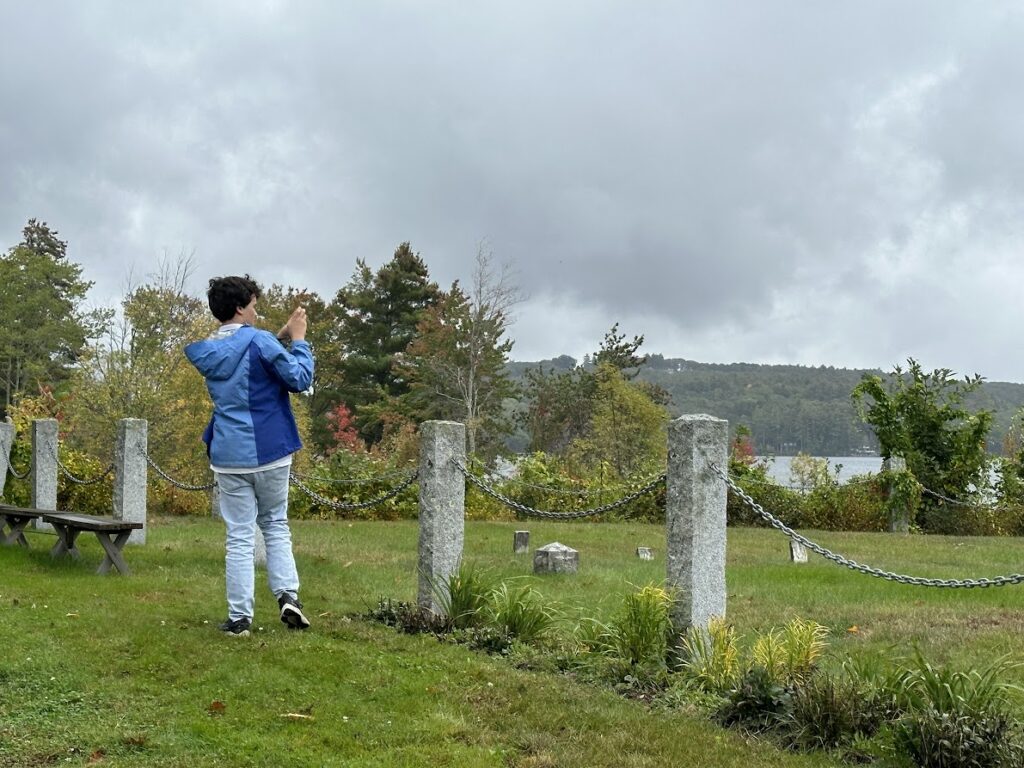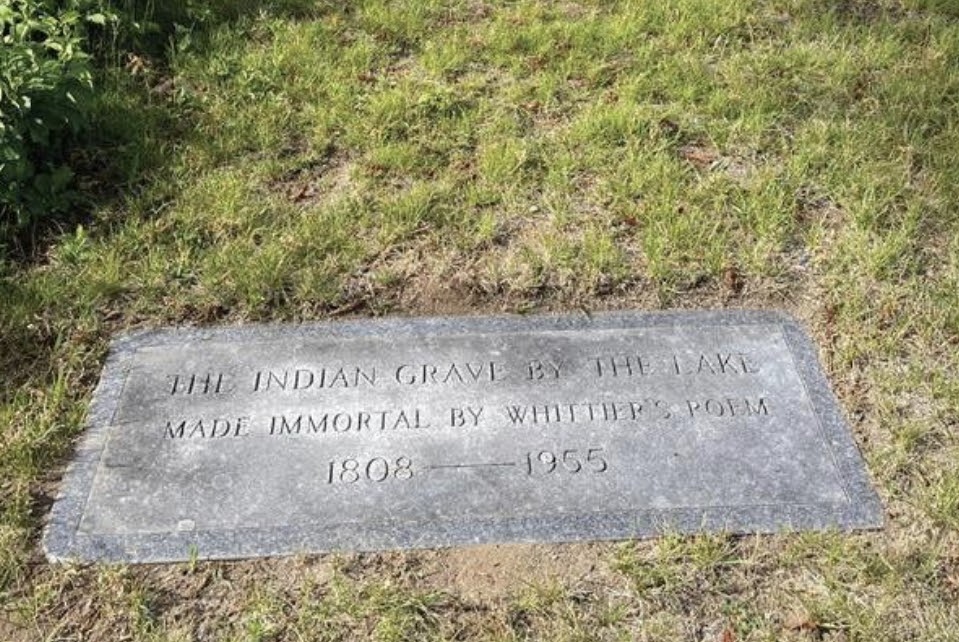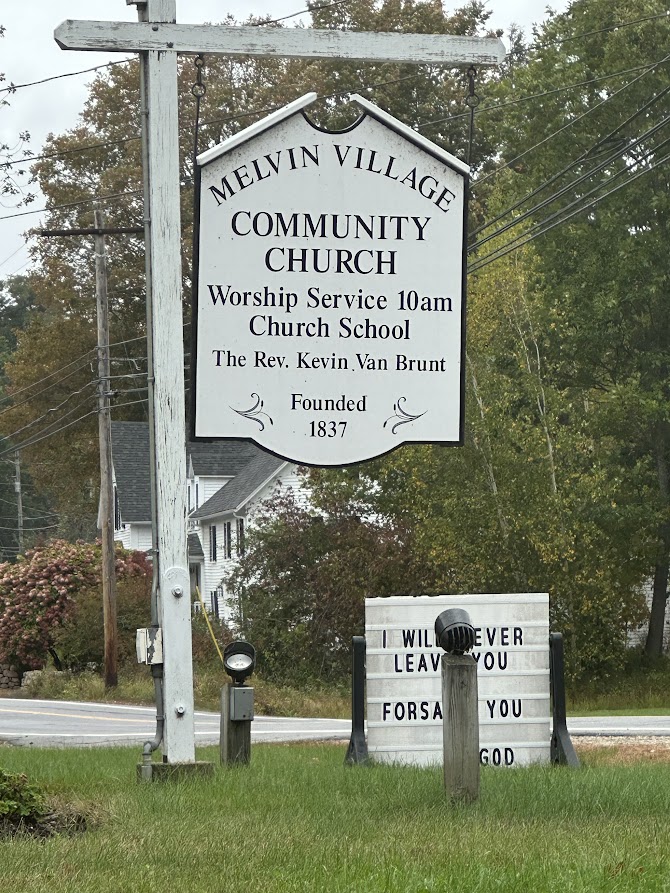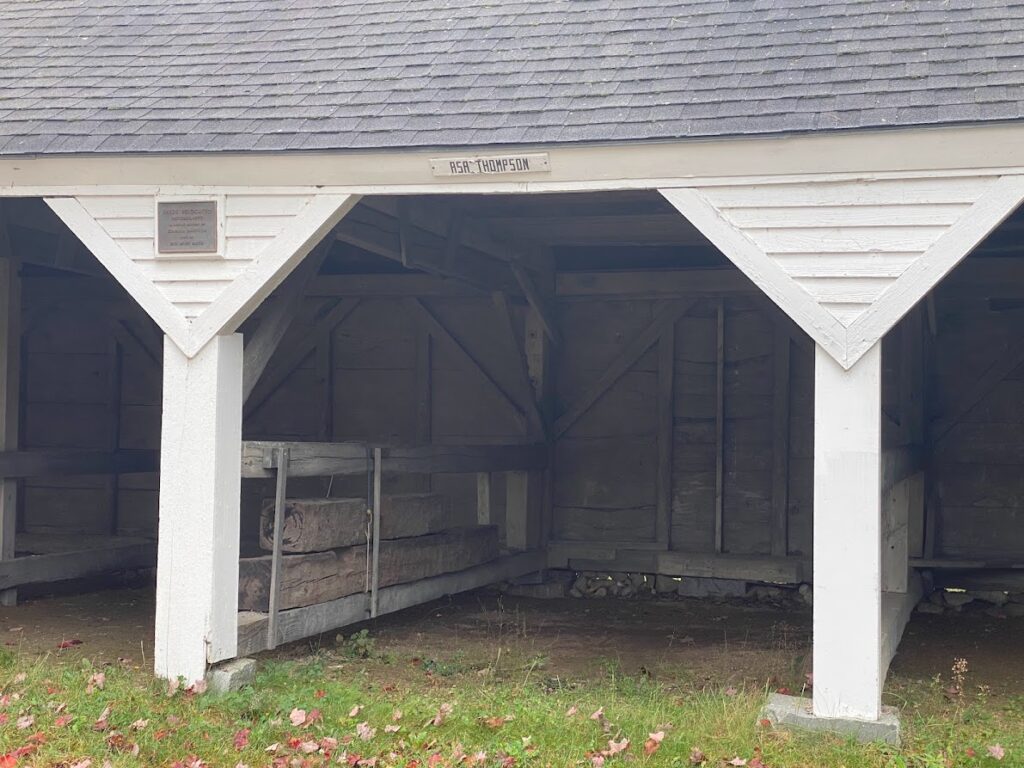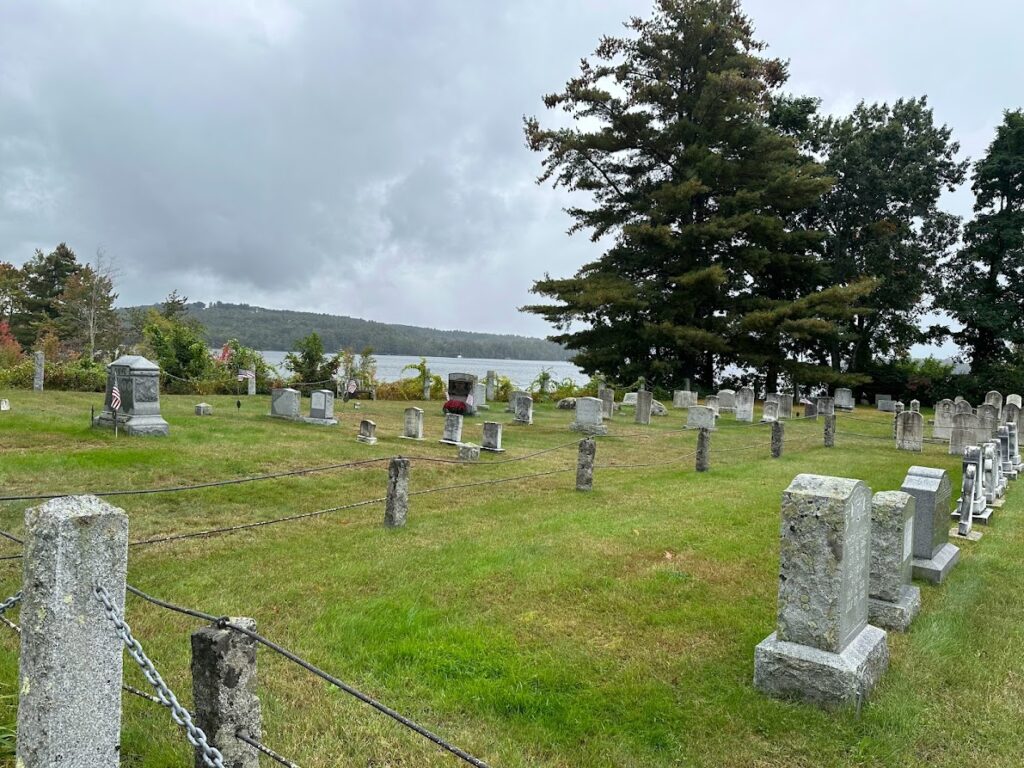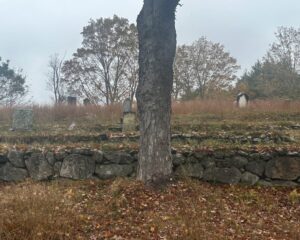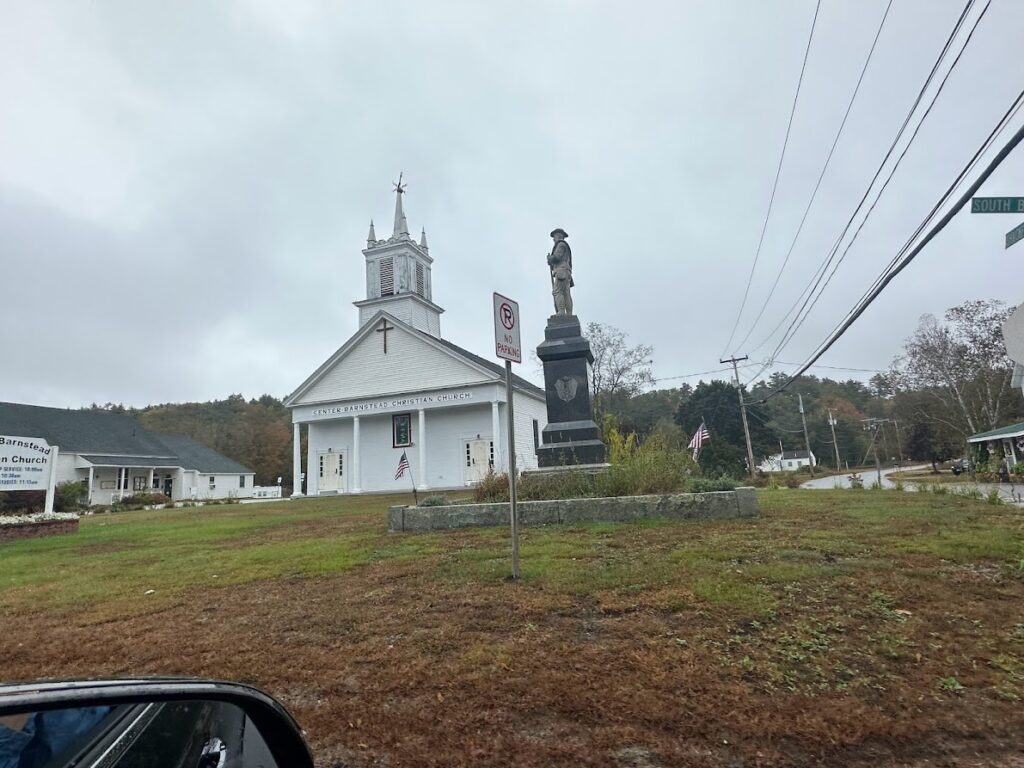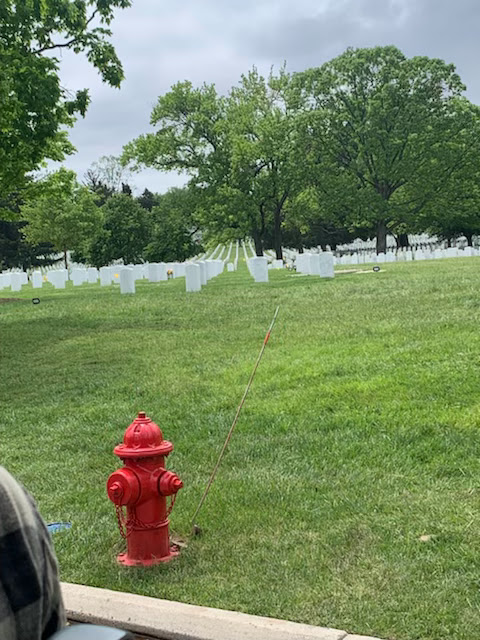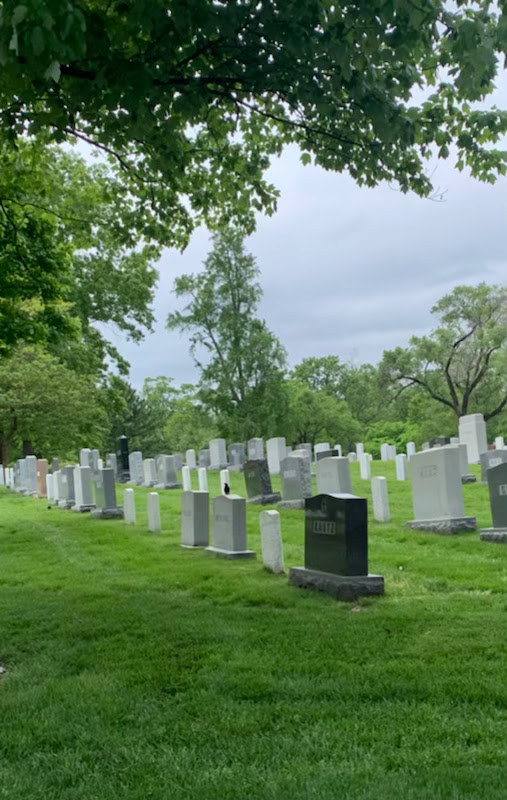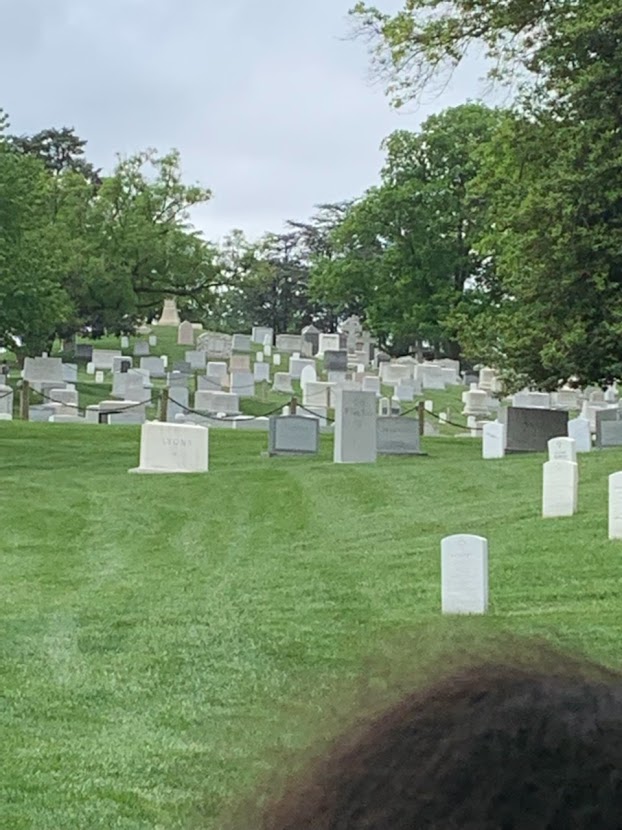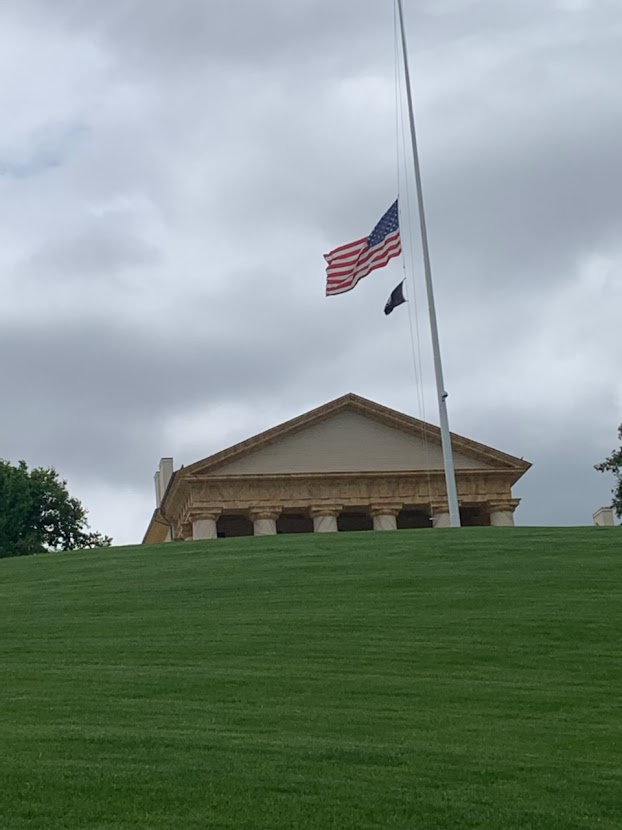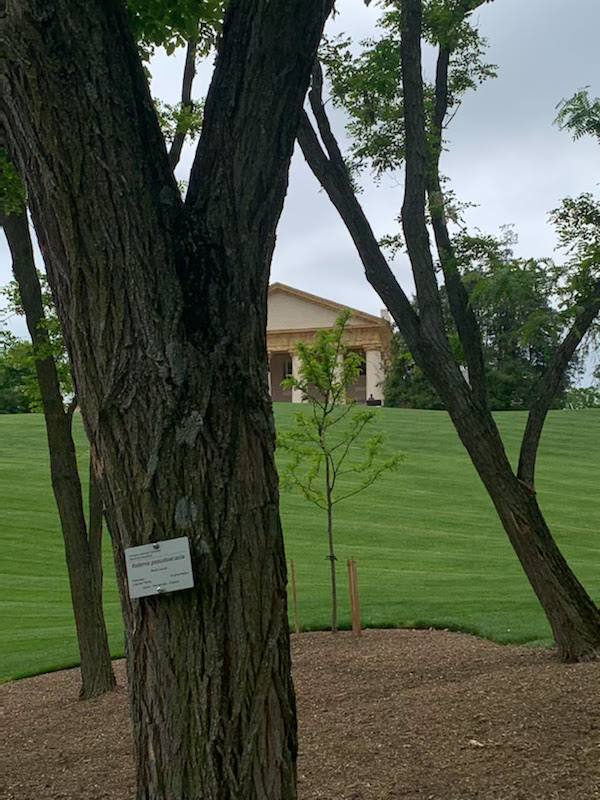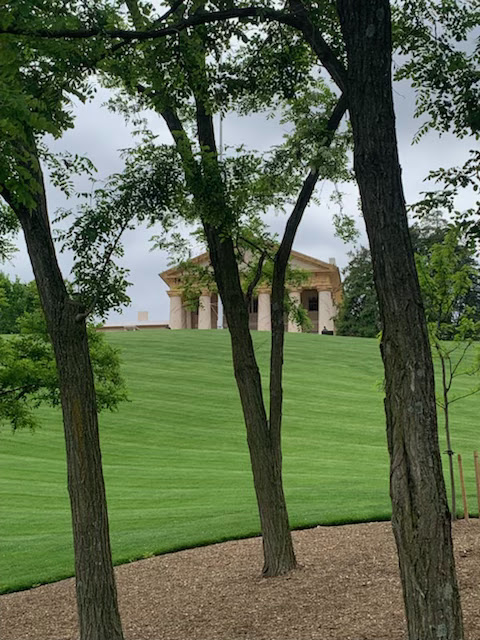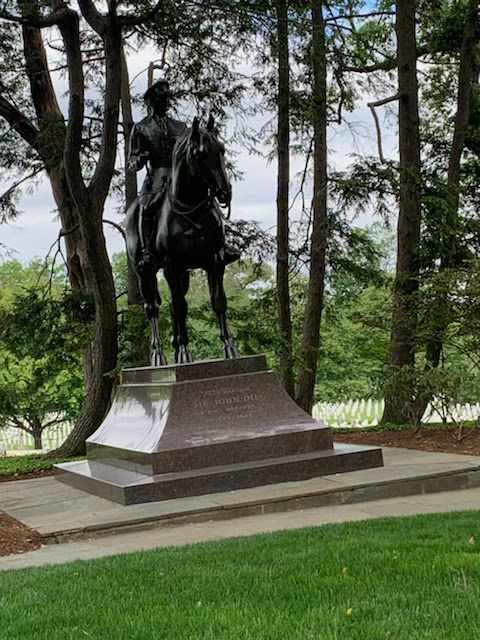In Tuftonboro, New Hampshire is a historical marker for the “Grave by the Lake.” In 1809 the remains of an extremely tall indigenous man was discovered. The man was eventually interred in the cemetery located behind the Melvin Village Community Church. The grave and the story behind it inspired the 1865 poem “The Grave by the Lake” by John Greenleaf Whittier.




Where the Great Lake’s sunny smiles
Dimple round its hundred isles,
And the mountain’s granite ledge
Cleaves the water like a wedge,
Ringed about with smooth, gray stones,
Rest the giant’s mighty bones.
Close beside, in shade and gleam,
Laughs and ripples Melvin stream;
Melvin water, mountain-born,
All fair flowers its banks adorn;
All the woodland’s voices meet,
Mingling with its murmurs sweet.
Over lowlands forest-grown,
Over waters island-strown,
Over silver-sanded beach,
Leaf-locked bay and misty reach,
Melvin stream and burial-heap,
Watch and ward the mountains keep.
Who that Titan cromlech fills?
Forest-kaiser, lord o’ the hills?
Knight who on the birchen tree
Carved his savage heraldry?
Priest o’ the pine-wood temples dim,
Prophet, sage, or wizard grim?
Rugged type of primal man,
Grim utilitarian,
Loving woods for hunt and prowl,
Lake and hill for fish and fowl,
As the brown bear blind and dull
To the grand and beautiful:
Not for him the lesson drawn
From the mountains smit with dawn,
Star-rise, moon-rise, flowers of May,
Sunset’s purple bloom of day,–
Took his life no hue from thence,
Poor amid such affluence?
Haply unto hill and tree
All too near akin was he
Unto him who stands afar
Nature’s marvels greatest are;
Who the mountain purple seeks
Must not climb the higher peaks.
Yet who knows in winter tramp,
Or the midnight of the camp,
What revealings faint and far,
Stealing down from moon and star,
Kindled in that human clod
Thought of destiny and God?
Stateliest forest patriarch,
Grand in robes of skin and bark,
What sepulchral mysteries,
What weird funeral-rites, were his?
What sharp wail, what drear lament,
Back scared wolf and eagle sent?
Now, whate’er he may have been,
Low he lies as other men;
On his mound the partridge drums,
There the noisy blue-jay comes;
Rank nor name nor pomp has he
In the grave’s democracy.
Part thy blue lips, Northern lake!
Moss-grown rocks, your silence break!
Tell the tale, thou ancient tree!
Thou, too, slide-worn Ossipee!
Speak, and tell us how and when
Lived and died this king of men!
Wordless moans the ancient pine;
Lake and mountain give no sign;
Vain to trace this ring of stones;
Vain the search of crumbling bones
Deepest of all mysteries,
And the saddest, silence is.
Nameless, noteless, clay with clay
Mingles slowly day by day;
But somewhere, for good or ill,
That dark soul is living still;
Somewhere yet that atom’s force
Moves the light-poised universe.
Strange that on his burial-sod
Harebells bloom, and golden-rod,
While the soul’s dark horoscope
Holds no starry sign of hope!
Is the Unseen with sight at odds?
Nature’s pity more than God’s?
Thus I mused by Melvin’s side,
While the summer eventide
Made the woods and inland sea
And the mountains mystery;
And the hush of earth and air
Seemed the pause before a prayer,–
Prayer for him, for all who rest,
Mother Earth, upon thy breast,–
Lapped on Christian turf, or hid
In rock-cave or pyramid
All who sleep, as all who live,
Well may need the prayer, “Forgive!”
Desert-smothered caravan,
Knee-deep dust that once was man,
Battle-trenches ghastly piled,
Ocean-floors with white bones tiled,
Crowded tomb and mounded sod,
Dumbly crave that prayer to God.
Oh, the generations old
Over whom no church-bells tolled,
Christless, lifting up blind eyes
To the silence of the skies!
For the innumerable dead
Is my soul disquieted.
Where be now these silent hosts?
Where the camping-ground of ghosts?
Where the spectral conscripts led
To the white tents of the dead?
What strange shore or chartless sea
Holds the awful mystery?
Then the warm sky stooped to make
Double sunset in the lake;
While above I saw with it,
Range on range, the mountains lit;
And the calm and splendor stole
Like an answer to my soul.
Hear’st thou, O of little faith,
What to thee the mountain saith,
What is whispered by the trees?
Cast on God thy care for these;
Trust Him, if thy sight be dim
Doubt for them is doubt of Him.
“Blind must be their close-shut eyes
Where like night the sunshine lies,
Fiery-linked the self-forged chain
Binding ever sin to pain,
Strong their prison-house of will,
But without He waiteth still.
“Not with hatred’s undertow
Doth the Love Eternal flow;
Every chain that spirits wear
Crumbles in the breath of prayer;
And the penitent’s desire
Opens every gate of fire.
“Still Thy love, O Christ arisen,
Yearns to reach these souls in prison!
Through all depths of sin and loss
Drops the plummet of Thy cross!
Never yet abyss was found
Deeper than that cross could sound!”
Therefore well may Nature keep
Equal faith with all who sleep,
Set her watch of hills around
Christian grave and heathen mound,
And to cairn and kirkyard send
Summer’s flowery dividend.
Keep, O pleasant Melvin stream,
Thy sweet laugh in shade and gleam
On the Indian’s grassy tomb
Swing, O flowers, your bells of bloom!
Deep below, as high above,
Sweeps the circle of God’s love.
1865


